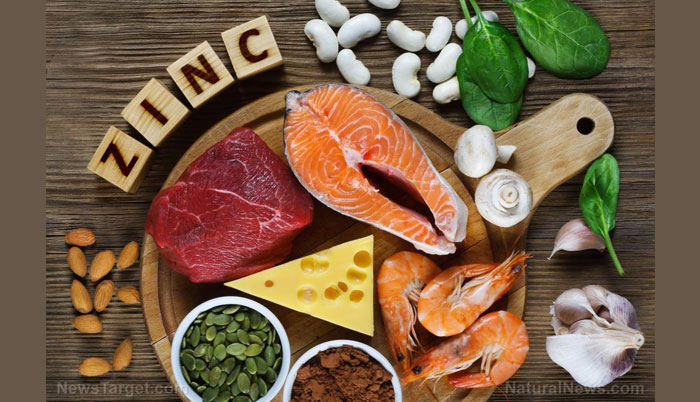![]() Home > Health
Home > Health
Here’s Why You Need Trace Minerals To Boost Your Overall Well-Being

News Target | Natural News
![]() April 9th, 2021 | 17:59 PM |
April 9th, 2021 | 17:59 PM | ![]() 458 views
458 views
NATURALNEWS
The human body needs minerals to function properly. In fact, there are two types of minerals — macrominerals and trace minerals. The body needs macrominerals, such as calcium, phosphorus, magnesium, sodium, potassium and sulfur, in large amounts; hence the name.
Although the body only needs a small amount of trace minerals, they still play a vital role in the human body. In fact, the National Institutes of Health says as much as 75 percent of American households do not meet the recommended daily allowances for trace minerals.
Add these 8 trace minerals to your diet
Here are some trace minerals that the body needs to function properly. It’s worth noting that while iron is considered a trace mineral, the amount needed is more than other microminerals.
Iron is a trace mineral that’s part of hemoglobin, the protein molecule in red blood cells that carries oxygen from the lungs to the tissues. It’s also needed for energy metabolism. Adult men need 10 milligrams of iron per day, while adult women need 18 mg per day because their body loses some of it during menstruation. Some sources of iron are organ meats, red meats, fish, poultry, shellfish (especially clams), egg yolks, legumes, dried fruits, leafy vegetables and iron-enriched bread and cereal.
Zinc is important for nucleic acid metabolism, cell replication, tissue repair and growth. The trace mineral is found in over 200 enzymes and plays a role in hormone regulation. Shellfish (especially oysters), beef, poultry, eggs, hard cheese, milk, yogurt, legumes, nuts and whole-grain cereals are good sources of zinc.
Iodine is an important component of thyroid hormones. It also reduces the risk of goiter, a condition marked by abnormal thyroid growth. Iodine-rich foods include seafood, iodized salt, dairy products, and food grown in iodine-rich soil. The recommended daily allowance of iodine for both men and women is 150 mcg per day.
Selenium acts as a potent antioxidant that prevents cell damage caused by free radicals. It also helps with the proper function of the thyroid gland. You can get selenium from meats, seafood and grains. People over 11 years old should only take the recommended amount of 55 mcg per day and not exceed the tolerable upper limit of 200 mcg per day. Despite its benefits, consuming too much selenium can lead to toxicity, with symptoms including hair loss, dizziness, nausea and muscle soreness.
Copper is found in many enzymes and is needed for iron metabolism. Copper-rich foods include legumes, nuts, seeds, whole grains and organ meats.
Manganese is a trace mineral that’s vital to carbohydrate metabolism and is found in a large number of enzymes. You can find manganese in most foods, especially plant foods.
Chromium works with insulin in managing blood sugar levels. Some chromium-rich foods include liver and other organ meats, brewer’s yeast, whole grains and nuts. For adults, the recommended daily allowance for chromium is between 50 and 200 mcg.
Molybdenum is a cofactor of enzymes that break down waste products and toxins in the body. The body just needs around 0.15 to 0.5 mcg of molybdenum daily, which it can get from legumes, breads, grains, leafy green vegetables, dairy and liver.
Trace minerals are important, as they help with many vital functions. Given their importance, add healthy foods that are rich in these trace minerals to your regular diet.
Source:
courtesy of NATURALNEWS
by Joven Gray
If you have any stories or news that you would like to share with the global online community, please feel free to share it with us by contacting us directly at [email protected]